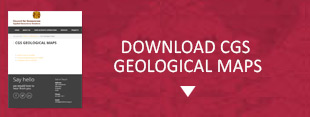
35TH INTERNATIONAL GEOLOGICAL CONGRESS
27 AUGUST - 4 SEPTEMBER 2016 | CAPE TOWN, SOUTH AFRICA
Sponsors

















35 IGC SAGPGF







35TH INTERNATIONAL GEOLOGICAL CONGRESS
27 AUGUST - 4 SEPTEMBER 2016 | CAPE TOWN, SOUTH AFRICA
My IGC
Mining Industry and Society: our new and challenging frontier
Mining Industry and Society: our new and challenging frontier
Jébrak, M. 1, Bergeron, K.M. 1, Gunzburger, Y.2, Kister, P. 2 and Piguet, J.P. 2
1Chaire en entrepreneuriat minier UQAT-UQAM, UQAM, CP8888 centre-ville, H3C 3P8 Canada, jebrak.michel@uqam.ca
2Chaire Mine et Société, Mines Nancy, Campus Artem, CS 14234, 54042 Nancy cédex, France
___________________________________________________________________________
The mining industry has successfully responded to population growth and technological developments. Geologists are instrumental in the discovery of new resources adapted to the continuously-changing needs of evolving consumers. However, the number of available surface or shallow-depth deposits is decreasing on most continents, except in their least accessible zones, that often also are the most sensitive to new human activities. The vanishing of scarcely populated or occupied spaces, the growing acknowledgement of Indigenous peoples’ land rights and the development of participatory approaches are revolutionizing the discovery process and the development of new deposits. Environmental and social impacts related to the exploitation of new resources are more and more accurately assessed and mitigated. An ore deposit may now be defined as a mineral concentration that is economically mineable and socially accepted.
There is a long story behind this … Early questions in the Middle Ages were focussed on the ore ownership, shared between God, or its delegates on Earth (the king), and the merchants providing the necessary investments. During the first industrial revolution, the industry developed its social action with a paternalist approach. With the development of welfare States, the mining industry restricted its activities to its core business. Since the eighties, the decline of the welfare state has created a void in the social support for the people working and living in and around the mining industry. Moreover, the industrial organization has moved from a mechanical to a biologic metaphor, implying a fuzzy limit to the industry, organized as a network irrigating the society. Therefore, corporate social responsibility became more and more a concern. The environmental, social and economic impacts of the mining industry were pinpointed. The situation varies according to the political tradition in each country. In decentralized States, such as federal countries, is appearing the need for a social licence to operate. In more centralized states, the development of industry-driven initiatives is constrained by existing (or under construction) regional development plans.
A responsible mineral development should be inclusive, fair and lasting. The mining project and its territory should be considered as an evolving system, related to regional and local development, and not as an isolated system, as it has often been the case, especially in Africa and developing countries. Such a system encompasses human, economic, energy, material, and knowledge with in- and out-going fluxes where both the industry and the community have possible gains.
As the first people on the field, geologists will be key actors on this moving frontier. They should learn how to dialog with numerous others disciplines, including human and social sciences. This is our new frontier!
 Field trips
Field trips  Sponsorship & expo
Sponsorship & expo  Registration
Registration Tours
Tours  Promotion
Promotion 














 Conference Programme
Conference Programme  Field trips
Field trips  Sponsorship & expo
Sponsorship & expo  Volunteer
Volunteer  GeoHost
GeoHost  Registration
Registration Tours
Tours  Promotion
Promotion  Publications
Publications









